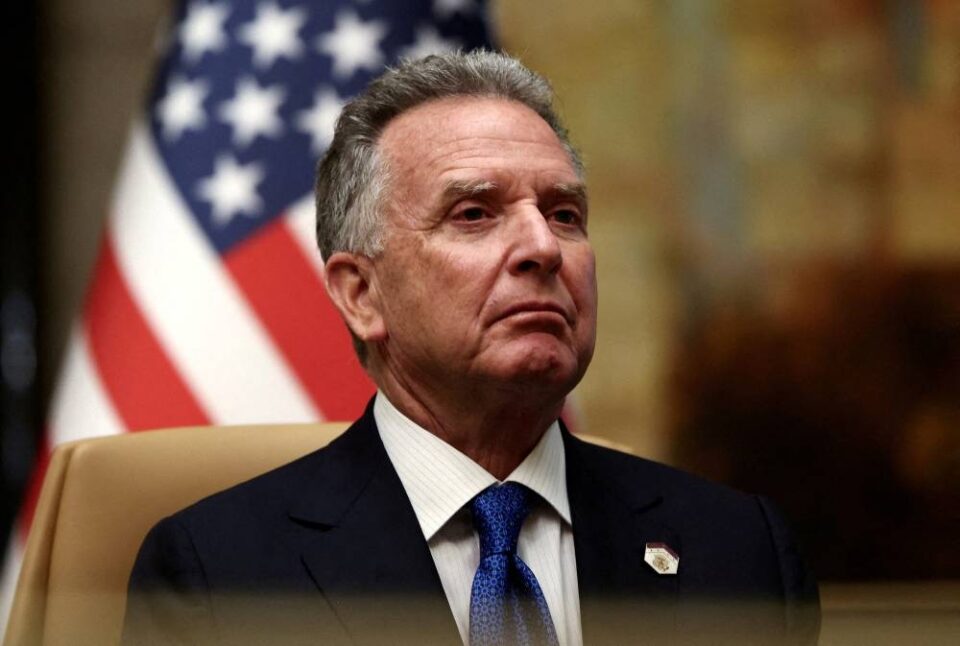Iran and the US held ‘positive’ and ‘constructive’ talks in Oman on Saturday and agreed to reconvene next week, both sides said, a dialogue meant to address Tehran's escalating nuclear programme with President Donald Trump threatening military action if there is no deal.
‘I think we are very close to a basis for negotiations and if we can conclude this basis next week, we’ll have gone a long way and will be able to start real discussions based on that,” Iranian Foreign Minister Abbas Araqchi told state television.
Araqchi said the talks – a first between Iran and a Trump administration, including his first term in 2017-21 – took place in a ‘productive, calm and positive atmosphere’.
‘Both sides have agreed to continue the talks … probably next Saturday … Iran and the US side want an agreement in the short term. We do not want talks for (the sake of) talks,’ Araqchi added.
A White House statement called the talks involving Trump's Middle East envoy Steven Witkoff, US Ambassador to Oman Ana Escrogima, and Iran's Foreign Minister Dr Abbas Araqchi ‘very positive and constructive.’
‘These issues are very complicated, and Special Envoy Witkoff’s direct communication today was a step forward in achieving a mutually beneficial outcome,’ it said. ‘The sides agreed to meet again next Saturday.’
Trump made a surprise announcement on Monday that Washington and Tehran would begin talks in Oman, a Gulf state that has mediated between the West and the Islamic Republic before.
Saturday's exchanges were indirect and mediated by Oman, as Iran had wanted, rather than face-to-face, as Trump had demanded. Each delegation had its separate room and exchanged messages via Oman's foreign minister, according to Iranian Foreign Ministry spokesman Esmail Baghaei.
Araqchi said his delegation had a brief encounter with its US counterpart headed by Witkoff, after they exited the talks.
‘After the end of more than 2-1/2 hours of indirect talks, the heads of the Iranian and American delegations spoke for a few minutes in the presence of the Omani foreign minister as they left the talks. It (the encounter) was based on our political etiquette,’ Araqchi said.
‘The current focus of the talks will be de-escalating regional tensions, prisoner exchanges and limited agreements to ease sanctions (against Iran) in exchange for controlling Iran's nuclear programme,’ an Omani source said.
However, failure would aggravate fears of a wider conflagration across a region that exports much of the world's oil.
Iran's Supreme Leader Ayatollah Ali Khamenei, who has the final say on key state matters, has given Araqchi ‘full authority’ for the talks, an Iranian official said.
Oman's Foreign Minister, Badr bin Hamad al-Busaidi, said that Muscat hosted the meeting to facilitate a dialogue and negotiation process to reach a fair and binding agreement.
He added that the meeting took place in a friendly atmosphere, which helped to narrow differences, thereby enhancing the prospects for achieving peace, security, and stability regionally and internationally.
Al-Busaidi expressed his gratitude to both parties for their commitment to this positive step, stressing that Oman would continue its efforts to support dialogue and understanding, contributing to the creation of favourable conditions for achieving constructive and sustainable outcomes.
